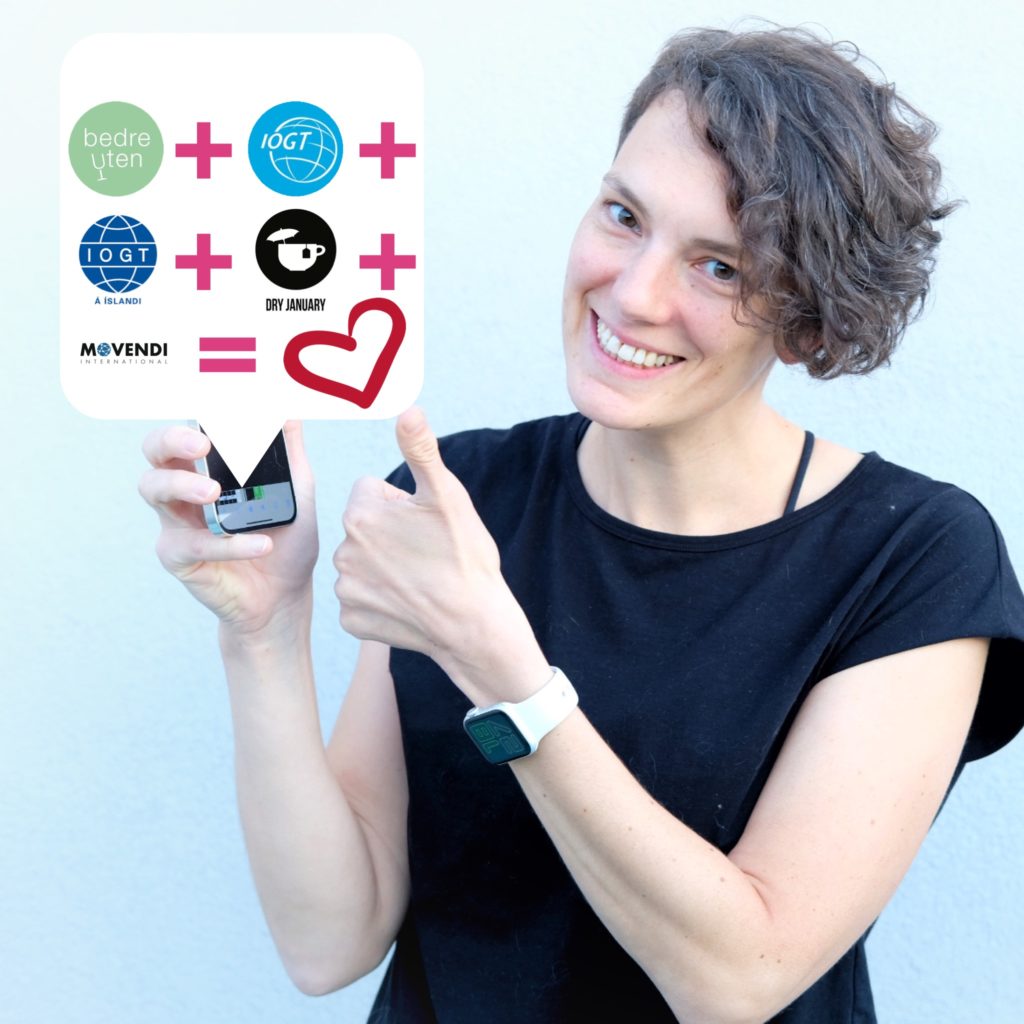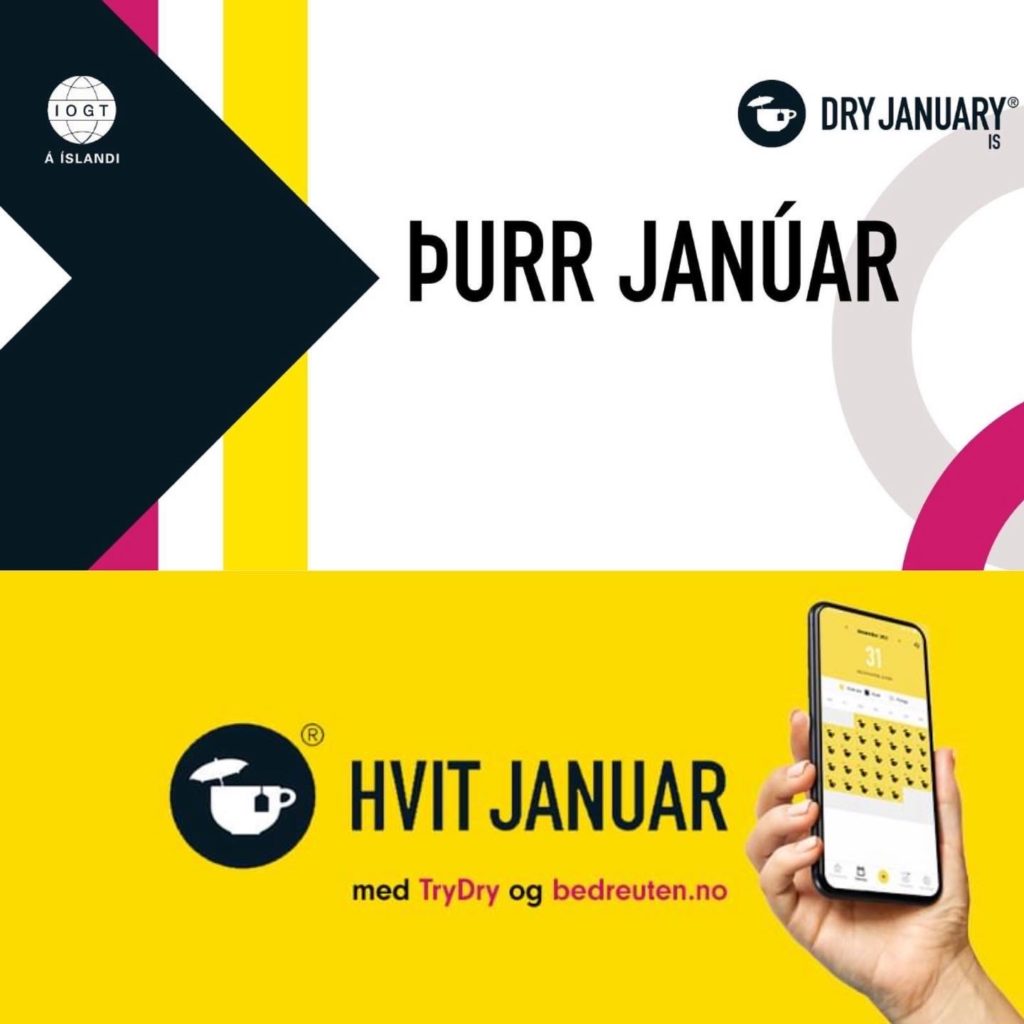Dry January is picking up more momentum in 2022. Last year, Movendi International reported about several countries participating in the Dry January challenge. These included, among others, the United Kingdom (UK), United States (U.S.), and Switzerland.
The Dry January campaign started in 2013 in the United Kingdom and has spread to other countries around the world. Dry January is a challenge but also a community to support one another to go alcohol-free or “dry” for the month of January. Similar alcohol-free month campaigns have been in existence for a long time in different parts of the world.
Rising Dry January popularity in the United States
This year, in the U.S. 19% adults over 21 years of age have said they are participating in Dry January. This is a significant rise from the 13% participating last year.
As usual Millennials are driving the popularity of this alcohol-free trend, with 27% of survey respondents being of this generation. Dry January is having a significant impact in the U.S. with 77% saying they have participated in the alcohol-free month before. The biggest reason for why people in the United States participate in Dry January is health. This shows that the campaign and the community is having a positive effect in changing deep rooted alcohol norms in society.
Alcohol-free January in Scandinavia
Movendi International in collaboration with member organizations in Norway and Iceland, is bringing Dry January to Scandinavia – with the support of Alcohol Change UK.
In Norway, Juvente and IOGT Norway are collaborating to promote “Hvit Januar” in the country for the first. They even work social media influencers.
In Iceland, IOGT Iceland is promoting “Durr Janúar” and creating a community of support on Facebook with lots of tips for how to enjoy an alcohol-free month and get healthier.
In both countries, Movendi International members are also promoting the Dry Try app, for people to experience all the benefits of Dry January.
Meanwhile, in Sweden, this year a survey by the Heart-Lung-Foundation shows that 9% are planning to do a “White January”. It is the same concept as Dry January, but translated into Swedish – a month free from alcohol, a white or “vit” month.
Rising demand for alcohol-free products
Dry January is not just a challenge it is also a community which creates supportive, inclusive environments for people to be free from alcohol and question and undo the alcohol norm and promote healthier social norms.
The growing number of people going alcohol-free is driving a higher demand for alcohol-free beverages and spaces. This is even pushing the alcohol industry to increase the supply of no and low alcohol products. For example, a survey by the Brewers Association of New Zealand found that in New Zealand sales of low-alcohol beer have shot up 1116% in the past five years.
NoLo alcohol brands anticipate for the alcohol-free trend to continue. More and more people are changing their behaviors and environments to favor health-conscious ways of life, especially as people come out of COVID-19 lockdowns.
I just think it’s a progression of the trend, quality over quantity, people being more conscious of their consumption, maybe even the lifestyles people are leading coming out of lockdown,” said Jos Ruffell, co-founder of craft brewer Garage Project, as per RNZ.
Jos Ruffell, co-founder, Garage Project
Multiple benefits of going alcohol-free
An alcohol free month has a range of benefits, especially to maintain good health and better well-being. The effects can also last for longer than a month. A study conducted by the University of Sussex about the effects of Dry January in 2019 in the UK found that after 6 months of completing the challenge,
- two thirds reported generally improved health, better sleep, and having more energy, and
- over half had lost weight and could concentrate better.
Alcohol use has a number of negative effects on health which can make everyday living harder. These include blood pressure problems, blood sugar issues, increasing the fat production in the body, as well as skin issues such as eczema.
Staying alcohol-free for a month helps reduce these problems. Research conducted by the Royal Free Hospital proves these benefits. Researchers followed up 141 people who were consuming on average over twice the alcohol as in the UK weekly low risk guidelines (14 units a week). Of all participants 94 went booze-free completely and the rest continued as usual. Blood samples taken at the end of the research found that:
Compared with those who continued to consume alcohol in high-risk levels those who went sober for a month showed improvements in
- blood pressure,
- cholesterol,
- cancer related growth factors and
- growth factors implicated in the development of skin cancer.
Any reduction in alcohol consumption can have short- and long-term physical and psychological benefits,” said Dr. Nicole Lee of the National Drug Research Institute at Curtin University, as per The Guardian.
With people who [use alcohol] regularly, when they reduce their use many find they sleep better, they can think more clearly during the day and they lose a bit of weight. Your heart, liver, stomach and brain will thank you.”
Dr. Nicole Lee, National Drug Research Institute, Curtin University
For people who participate in an alcohol-free month it is also important to be mindful about healthy behavior throughout the year and not just during a single month. It is important to have good physical health to also achieve good mental health. And a health related goal for the whole year like reducing alcohol use or going alcohol-free can be a good place to start.
Most people who participate in Dry January experience these benefits once they cut back or ditch alcohol entirely.
More and more people around the world experience the benefits of going alcohol-free. These positive experiences encourage people to continue being sober curious and spread positive attitudes about going alcohol-free. In this way, Dry January is one of the most influential campaigns undoing the harm of pervasive alcohol norms.
Sources
Morning Consult: “Dry January Movement Grows in 2022, but for Many It’s More Damp Than Dry“
RNZ: “Non-alcoholic beer ‘flying out the door’ as sales of low-alcohol beer up 1116 percent“
The Guardian: “Easy wins: cutting down on alcohol – ‘your heart, liver, stomach and brain will thank you’”
Alcohol Change UK: “Health first: why Dry January can be a step in the right direction“
Accent: “White January good for health” [Translated from Swedish]

